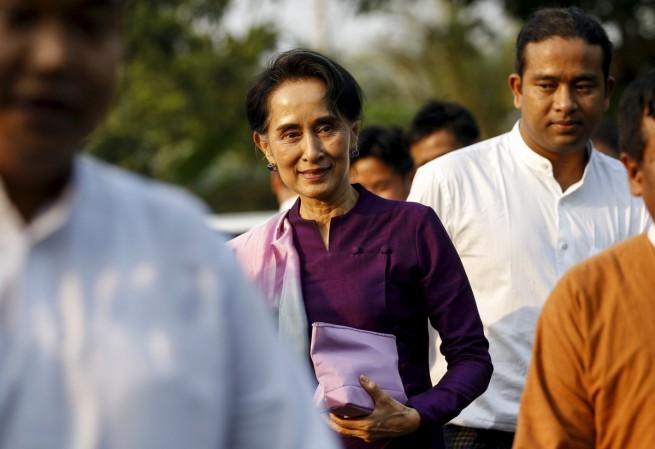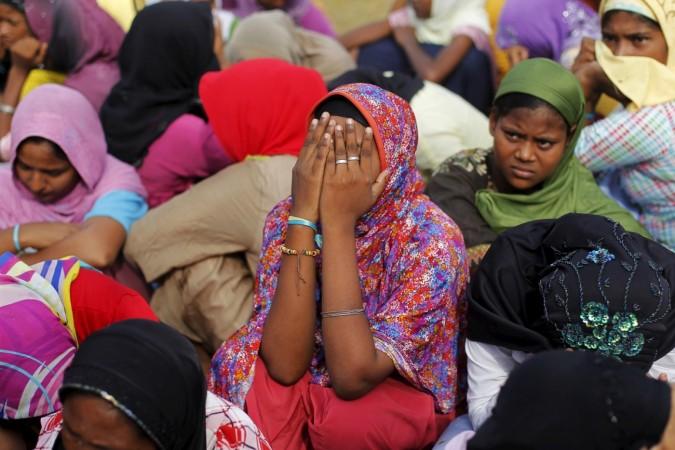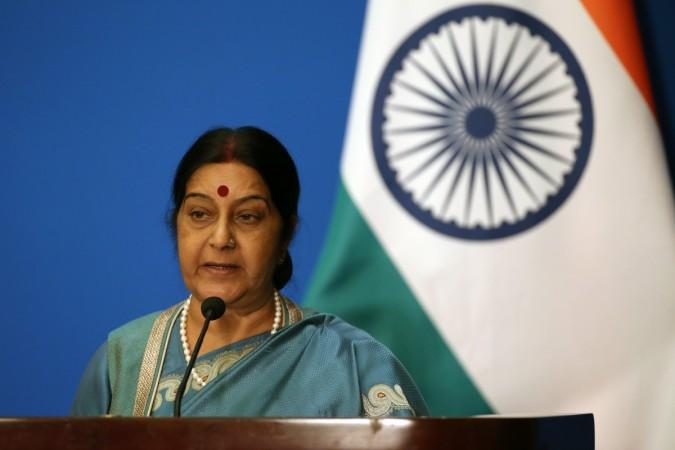Myanmar leader Aung San Suu Kyi, in her first televised speech on Rohingya crisis, has said that Rohingya refugees will be allowed to return to the country, only if they pass a "verification" process. Suu Kyi made the statement to assure the foreign diplomats gathered for her speech at Naypyitaw, the Myanmar capital.
The Nobel laureate took to stage on Tuesday to say that Myanmar does not fear international scrutiny and that the country is making every effort to restore peace and normalcy in the region, according to reports.

Suu Kyi has been slammed by many human rights advocates for maintaining a silence on the plight of the Rohingya community in Myanmar. The United Nations (UN) has also accused the country's army of committing violence and "ethnic cleansing" of the community. Nearly 40,000 of the refugees over the years have fled and settles in India, while around 16,000 are registered with the UN's refugee agency.
Nearly 40,000 of the refugees over the years have fled and settled in India, while around 16,000 are registered with the UN's refugee agency.
The Rohingyas are stateless Indo-Aryan people from Rakhine state, Myanmar, who are categorised as one of the most persecuted minorities in the world.
Ever since the latest flare-up of violence against the community in Myanmar on August 23, more than 3 lakh Rohingyas have fled the state, pouring into nearby countries like Bangladesh seeking refuge.
"We condemn all human rights violations. We are committed to peace and [the] rule of law. The security forces have been advised to adhere to [the] code of conduct; to exercise all measures to avoid collateral damage. We feel deeply for the suffering of all people who have been caught in the conflict," Suu Kyi said in her address.

Suu Kyi gave her speech in English, indicating that the speech was primarily meant for the international forum.
"If you are interested in joining us in our endeavours, please let us know," she told foreign diplomats gathered for her speech. "We can arrange for you to visit these areas and to ask (those who stayed back) why they have not fled, why they have chosen to remain in their villages."
"Nevertheless, we are concerned to hear that numbers of Muslims are fleeing across the border to Bangladesh," she said. "We want to understand why this exodus is happening. We would like to talk to those who have fled as well as those who have stayed."
As Suu Kyi gave her first public address on the issue, External Affairs Minister Sushma Swaraj met with Bangladesh Prime Minister Sheikh Hasina in the United States. Both India and Bangladesh have taken a significant number of Rohingya refugees.

Although the leaders met at the United Nations General Assembly (UNGA) session, MEA officials said that the Rohingya issue was not discussed during their conversation. Swaraj also had a telephonic conversation with Hasina last week, where the minister had said that India would put on pressure Myanmar on the Rohingya refugee issue.
However, Bangladesh Foreign Secretary Shahidul Haque told media that Swaraj and Hasina had discussed the Rohingya issue and quoted Swaraj as saying that India stood by Bangladesh on the issue.
"Sushma Swaraj said that India always stands by Bangladesh and will help to resolve the crisis," said Haque.
India continues to sent assistance to Bangladesh amid the refugee crisis, by sending daily flights with 7,000 metric tonnes of relief material for the refugees.














